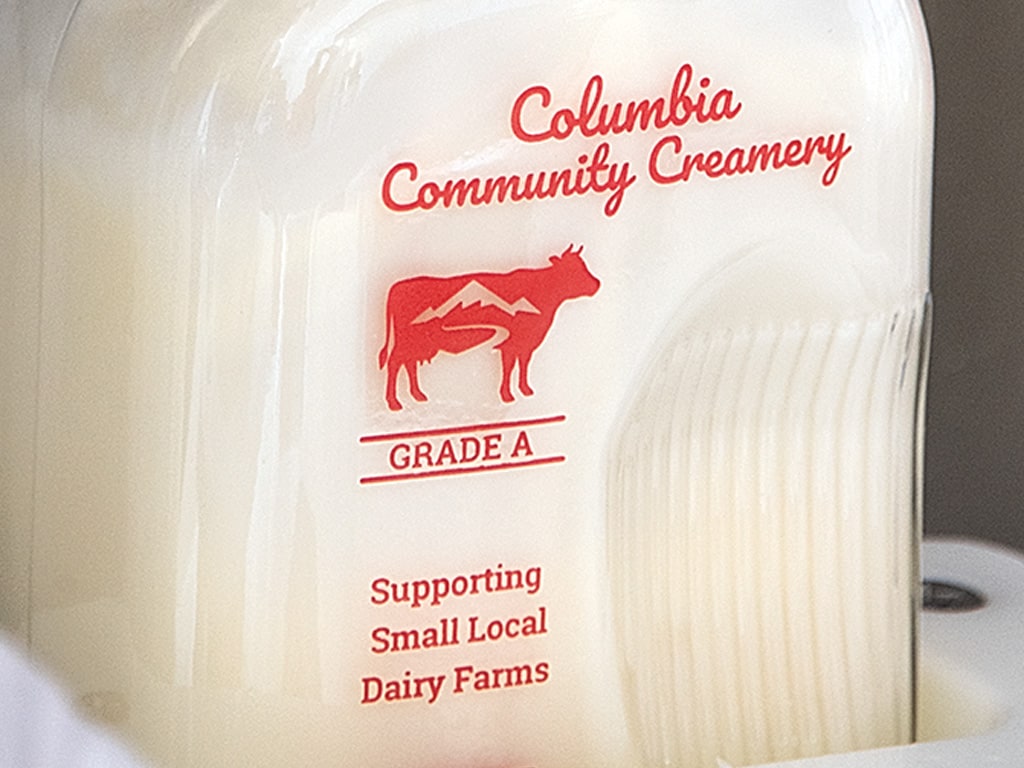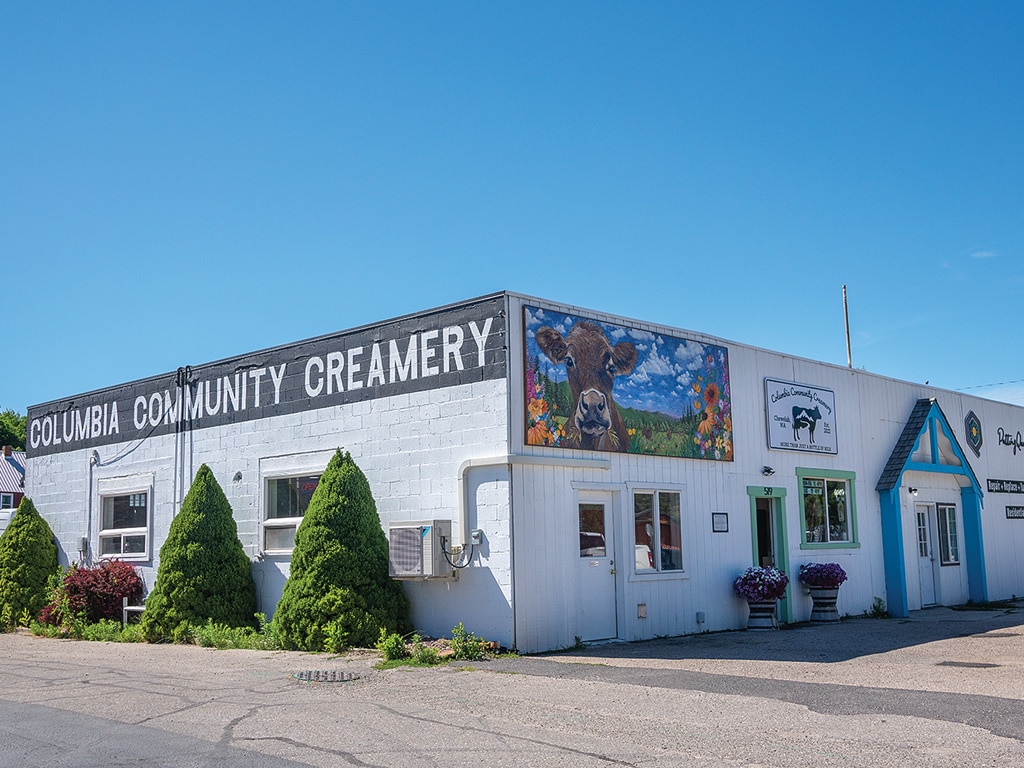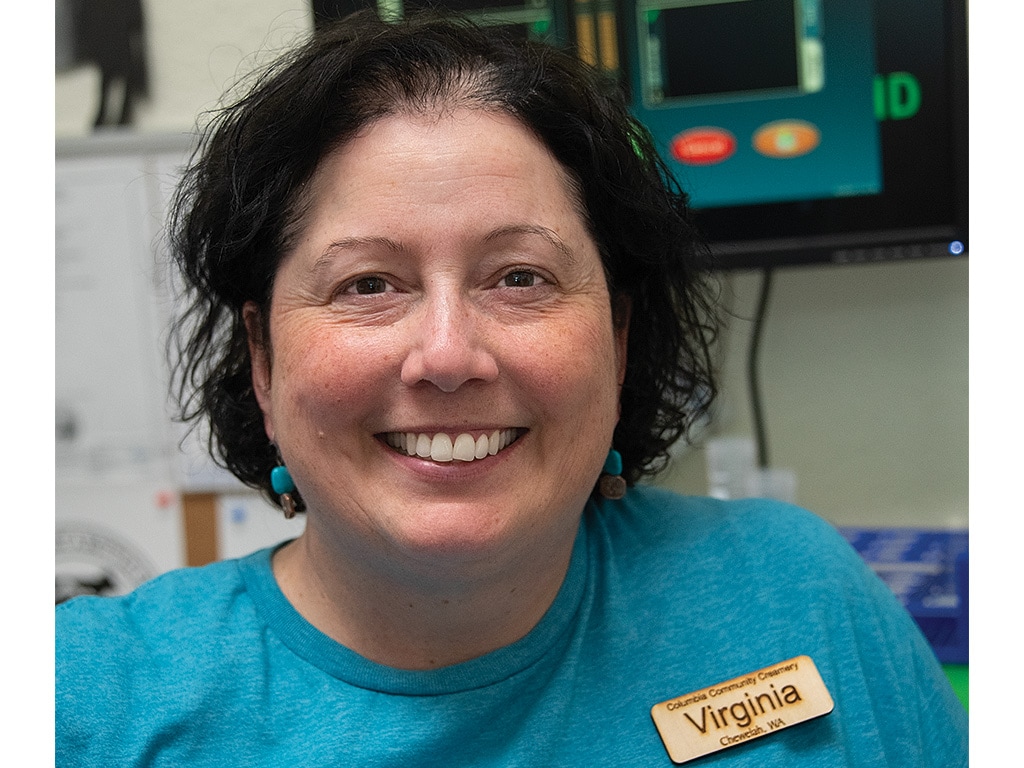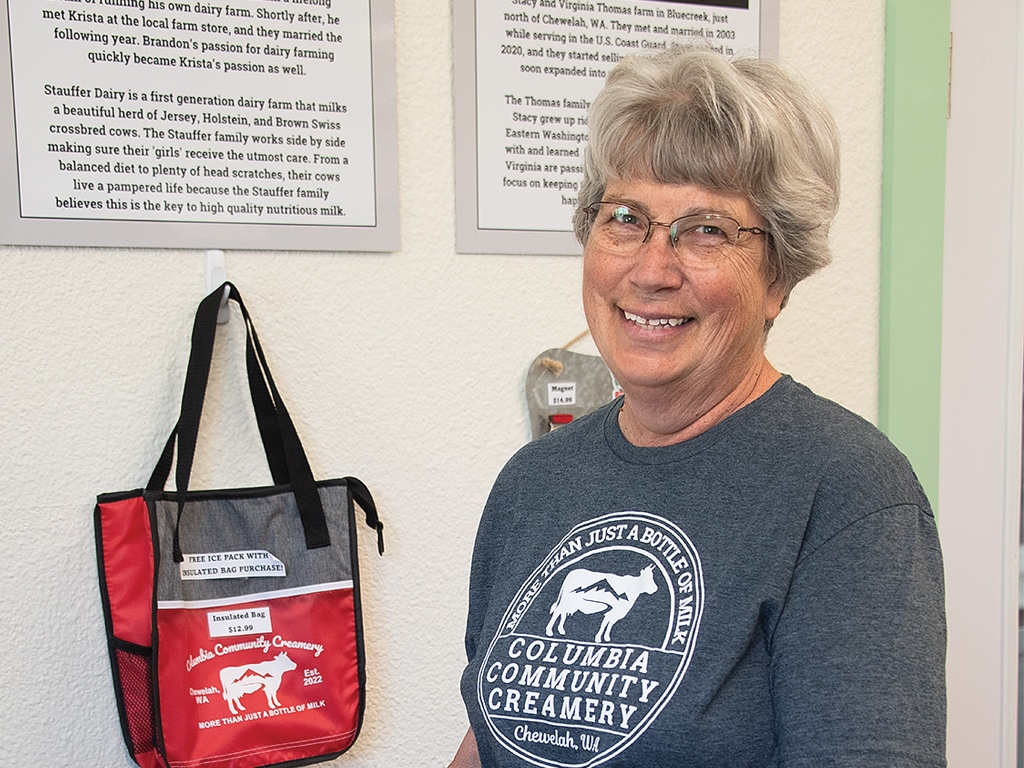Agriculture, Livestock/Poultry November 01, 2024
Non-Profit, Plenty of Benefits
Non-profit creamery is a lifeline for isolated dairies.
by Steve Werblow
In a world where profit is a key measure of success, establishing the Columbia Community Creamery as a non-profit organization seems like a missed opportunity—until you talk to its enthusiastic supporters, who quickly set the record straight. As their motto proudly states, it's about "more than just a bottle of milk."
"Our mission as a 501(c)3 [non-profit] is to provide market access to small dairy farmers, including processing and distribution, and then technical assistance," says Virginia Thomas of Clover Mountain Dairy in Chewelah, Washington, the creamery's treasurer. "To the public, we provide education and food access, food quality, food security, and really rebuild the local dairy infrastructure in the area."
Board member Brad Shaffer—who spent decades in Starbucks' legal department before retiring to the Stevens County land his great-grandfather homesteaded in 1905—was instrumental in setting up the non-profit structure.
"We felt the non-profit model would be better able to serve the community rather than having a co-op, which is profit-based," he says. "We can provide profit to the dairy farmers by offering a good price per gallon, then take the creamery profit and pour it all back into the business and the community at large.
"We felt our touch to the farmers would be broader as far as the science, helping make sure we have the highest quality dairy products," he adds, "and also the education for the community. You wouldn't necessarily see the education piece in a cooperative."
Non-profit status also qualifies the organization to apply for grants. A state grant helped fund the equipment in the creamery, which now processes about 500 gallons of milk per week.
Above. Glass bottles and cream-top milk remind many customers of their childhoods. The creamery operates its plant and retail space in a former pet grooming space. Doris Woelk runs the store two days a week. Virginia Thomas and her husband sell half of the milk from their 12-cow herd to the creamery; two other dairies provide the rest.
Lifeboat. Three small farms—out of just nine dairies left in Stevens County—each send about half their milk to the creamery. Selling half of a small flow of milk won't make any of them rich, but a set price and prompt payment from the creamery are worth a lot in peace of mind, notes Thomas.
"I think the board was thinking, 'it's not going to be a rescue ship, but it will definitely be a lifeboat to help some farms who are looking to diversify,' " she says.
Virginia and her husband Stacy, board president, are among the three suppliers to the creamery. Stacy notes that selling milk to the creamery can help reduce stress for farmers who typically have to struggle with on-farm processing and direct marketing.
"There's a farm that used to make cheese with 100% of their milk," he points out. "Cheesemaking is a very labor-intensive process. They like cheesemaking, but they like not having to make cheese every day. So we give them a break, it's a better work-life balance for them, and they still get a good price for their milk."
Cheesemaking has turned out to be popular with the public.
"In this area, you have a lot of people who do food preservation already, canning, dehydrating, and whatnot," notes Virginia Thomas. "So they like to make their own yogurt or butter or cheese. To encourage that works wonderfully because it meets our goal twice—it helps us get education out there and then it also creates a market."
Shoppers can stop by the creamery's little retail shop in downtown Chewelah to pick up rennet, cheese cultures, and yogurt starter along with their milk. There's also heavy cream, chocolate and latte-flavored milk, several flavors of ice cream, and around Christmastime, egg nog that flies off the shelves.
Nearly half of the creamery's sales are made on-site to locals (and at least one dedicated fan who travels 70 miles to pick up their favorite milk), says former dairy farmer Doris Woelk in the retail shop. The rest is sold in the natural food sections of groceries in a roughly 60 mile radius from Spokane to the Canadian border.
At $11 a gallon, the milk isn't cheap. But Woelk says customers often express gratitude for it.
Executive director Brittany Bilte points out, "I think this is happening at the perfect time, when everybody just wants to get back to their roots, and they want to know about their food." ‡
Read More

AGRICULTURE, FARM OPERATION
Prevailing With Pintos
Branding a commodity keeps beans in the rotation.

AGRICULTURE, SPECIALTY/NICHE
The Seed Man
Quebec farmer works tirelessly to popularize unknown heirloom crop varieties.





